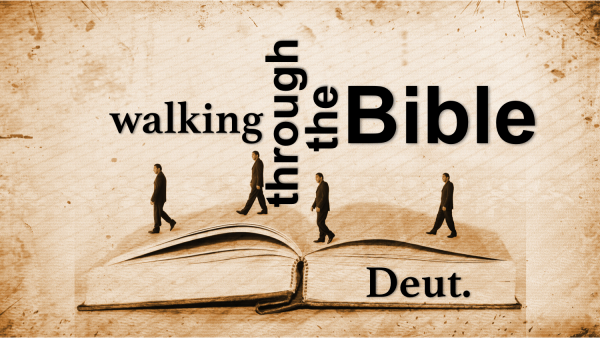When studying through the Bible, the astute learner would observe that Deuteronomy, in many ways, is a repetition of Leviticus. However, just because much of it is the same as has been studied before does not mean that its text is worthless to the twenty-first century student. In addition to the law that is presented again, there are historical accounts that are important to one’s general knowledge of the Bible and its events. Deuteronomy is referred to as the “book of remembrance” because of its theme. “It consists of a series of discourses by Israel’s 120-year old leader (Moses) to the new generation who survived the forty years of wilderness wanderings and were now ready to possess the land of promise” (Young). These, who at the first giving of the law would have been younger than twenty years old, were not responsible for learning it when first given, and though possibly taught it to some degree by their parents during the wanderings, now are in need of a formal reception of this law that they might hopefully submit to it better than did those who went before them.
Deuteronomy, which means “the second law,” derives its name from the Septuagint’s mistranslation of Deuteronomy 17:18. Deuteronomy is not a second law, but is simply a restating of the original law received at Mount Sinai. It was written chronologically following the events of Numbers in which the first generation of Israel, which had been delivered out of Egypt, disobeyed God and died in the wilderness with the new generation then growing into the “paternals” of the nation. Wherein the events of Genesis spanned some 2,500 years, Exodus spanned some 215 years, and Numbers spanned some 40 years, Deuteronomy is believed to have covered about one month of ancient history. And like the others of Moses’ writings, would have been written shortly before 1400 B.C.
Moses is, with little question from Bible believers, considered the author with one difference in opinion. Wherein there is little question that Moses wrote Deuteronomy 1-33, there is some argument as to whether he wrote chapter 34 in which his own death and burial is recorded. It is personally believed that wherein Moses was inspired to write this book by God, and God exists outside of time being able to see all events from past, present, and future that this is probably the means through which Moses did in fact pen this final chapter himself. However, if this is not the case (which is possible) then the other logical conclusion is that Joshua, Moses’ successor, penned the final chapter following Moses’ death.
Deuteronomy is vastly known for its text of law. It has been counted that this book alone contains 613 commandments, comprised of 245 “thou shalts” and 368 “thou shalt nots” with laws that pertain to “food, diseases, purification, places of sacrifice, worship, marriage, idolatry, vows, morality, penalties for disobedience, and other civil, social, national, and personal duties” (Young). However, one little known fact regarding Deuteronomy is its emphasis on the love of God. Law was, and is, provided because God in His love desires for His children to be governed according to that which is right. If God did not love man then He would allow him to live in anarchy and chaos. But, because of His love He provided law by which Israel could live healthily, happily, and honestly until the Messiah could be sent bringing redemption.
Likewise, should Deuteronomy be recognized for its contribution to the rest of the Bible. There are at least 356 Old Testament references to Deuteronomy and at least 96 in the New Testament. It was from Deuteronomy that Christ quoted when answering the nonsensical temptations of Satan in the wilderness of Matthew 4 (Deuteronomy 8:3; 6:16; 6:13) as well as many other times in which He turned His mind back to Deuteronomy to make a point (Matthew 22:37-38; Mark 7:10; 10:19,29-30). Obviously, though, the most important and interesting look at Deuteronomy brings back the picture of Christ as seen in its text. The most blatant portrait of Christ in Deuteronomy would be found in Deuteronomy 18:15 where Moses wrote “The Lord thy God will raise up unto thee a Prophet from the midst of thee, of thy brethren, like unto me; unto him ye shall hearken.” Christ is that Prophet risen from the midst of Israel unto whom all men were and are to hearken. It was Christ whom Peter proclaimed to be this Prophet in Acts 3:22-23 and 26 saying, “For Moses truly said unto the fathers, A prophet shall the Lord your God raise up unto you of your brethren, like unto me; him shall ye hear in all things whatsoever he shall say unto you. And it shall come to pass, that every soul, which will not hear that prophet, shall be destroyed from among the people…Unto you first God, having raised up his Son Jesus, sent him to bless you, in turning away every one of you from his iniquities.” Truly Christ is that great Prophet, but not only Prophet, but Priest, King, and also God.
Deuteronomy, though commonly ignored, is truly a great book of antiquity from which much knowledge can be gleaned. May it always be upheld for its truth and wisdom imparted through a study of it.
-Andy Brewer

